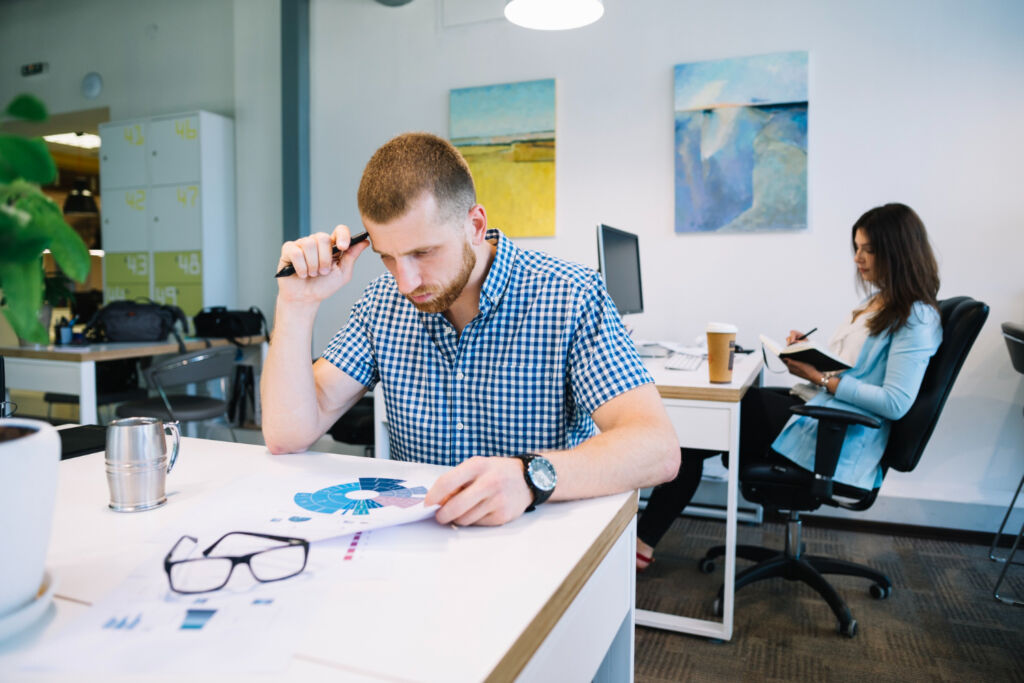

June 8, 2022
A discovery workshop is a service that helps organizations to better understand their users and stakeholders. Through discovery workshops, valuable insights can be gained into user behavior and preferences that shape product features and overall customer experience. Working with experts in the field, discovery workshops combine a range of research tools such as surveys, interviews, and focus groups to gain a deeper knowledge of target audiences. The goal of discovery workshops is to identify opportunities for innovation and generate actionable ideas which benefit both customers and stakeholders alike.
Professional design discovery workshops allow organizations to review existing strategies and explore how the design process can help them reach their goals. Through design discovery, teams can collaborate and ideate on ways to innovate while taking into account user needs and business objectives.
The design discovery process helps manage design constraints by allowing team members—from different parts of an organization—to ask difficult questions and test assumptions in a more effective way. Ultimately, design discovery is essential for forces organizations to make well-informed design decisions that leverage technology to create viable solutions that lead to positive change.
Preparing for a design discovery workshop is an essential step for creating a user-centered goal. This kind of workshop can range from conducting design thinking activities, interviews, and research to design critiques. It provides a chance for business leaders and design teams to realign their objectives in terms of user goals and find innovative solutions that meet their needs. It sets the foundation for developing successful products or services that will make customers happy by providing them with value and a positive experience.
Starting with a list of all relevant stakeholders helps keep everyone in the loop when adjustments to objectives or timelines are needed. Prioritizing needs and wants among them also enables everyone to get on the same page with expectations in terms of resources and deliverables.
Through thoughtful preparation, discovery workshop services have proven to be an effective method to guide organizations toward successful solutions.
Doing your research before attending discovery workshops is a great way to ensure you get the most out of the experience. By researching potential topics and gathering background information, you can go in with a list of ideas, themes, and questions that will help guide the workshop dialogue. This will also allow discovery workshop services to zero in on what it is that you’re trying to achieve during the session.
Before attending any discovery workshop, it’s helpful to consider themes related to your product or business that can be discussed and explored during the session. Curious minds make for better discovery workshops as they allow us to challenge our own assumptions and uncover new points of view.

Setting the rules of engagement is an essential step in facilitating design discovery workshops. Before jumping into any design work, it’s important for participants to understand what the design process will look like and to be on the same page about expectations.
From there, workshop moderators can help keep conversations focused and heading toward productive design solutions by setting time limits or expectations around discussion topics. Ultimately, research-driven design discovery workshops are a great way for teams to get organized and build enthusiasm around design initiatives.
As facilitators, it is important to design discovery workshops that are engaging and promote meaningful conversations between participants. When planning a workshop, consider the dynamics of the group by creating activities and setting expectations that foster an environment of open dialogue.
A good way to do this is through setting clear guidelines that state: everyone should contribute equally, both positive and critical feedback are welcome, and no conversation will be judged or disregarded.
By proactively creating a safe space for mutual learning, facilitators can ensure that all participant voices are heard while at the same time contributing to their understanding of how to design effective workshops in the future.
A design discovery workshop is a great way to facilitate the collection of actionable insights and ideas. Through facilitated discussions and design exercises, stakeholders can collaborate to collectively generate valuable insights that can be taken forward.
It is key to design activities that help participants share their different perspectives in order to gain valuable learnings and embrace a holistic view of the topic under discussion. As such, properly structured design workshops help uncover valuable findings and aid in developing successful strategies going forward.
At the end of every discovery workshop, it’s important to summarize each of the discussed topics and any decisions that have been made. During our workshop services, take time to review with all participants what we’ve discovered and the progress made throughout the session.
When possible, also provide an overview of your action steps going forward to ensure everyone is on the same page. Recognizing this final step is especially important in keeping development moving in the right direction.
Concluding a discovery workshop is an important step in ensuring the success of your services. By creating follow-up tasks with clear next steps and timelines, you can stay on track with project objectives and deliverables. This will help maximize efficiency, allowing you to move forward quickly and efficiently in order to exceed client expectations. Taking the time to reflect upon what was accomplished during the workshop and create these tasks will serve to reinforce the value and success of your discovery workshop services.
At the end of any workshop, it’s important to document and share all the results with stakeholders. This not only helps to ensure that everyone has an accurate understanding of the outcomes but also serves as a reference point should a review be needed at a later date. Taking notes during each stage of the workshop is paramount, whether it’s writing down key points or capturing feedback from discussions and activities.
Once completed, the notes should be collated and distributed to those who attended and stakeholders that weren’t present. Depending on the nature of the project, different methods may be used such as emails and hosted spaces like Dropbox folders or Google Drive organizing documents in one central place for ease of access.
Ultimately, documenting and sharing results is essential for ensuring everyone is on board with current progress and for creating transparency for future initiatives too.
Organizations should consider using discovery workshops as an effective way to uncover valuable information about customer needs and product features, test assumptions and generate creative solutions. They can also be used to create alignment within teams by providing a platform for stakeholders to express their perspectives on challenging topics. In addition, they provide an opportunity for teams to collaborate more effectively by emphasizing open dialogue and mutual respect between